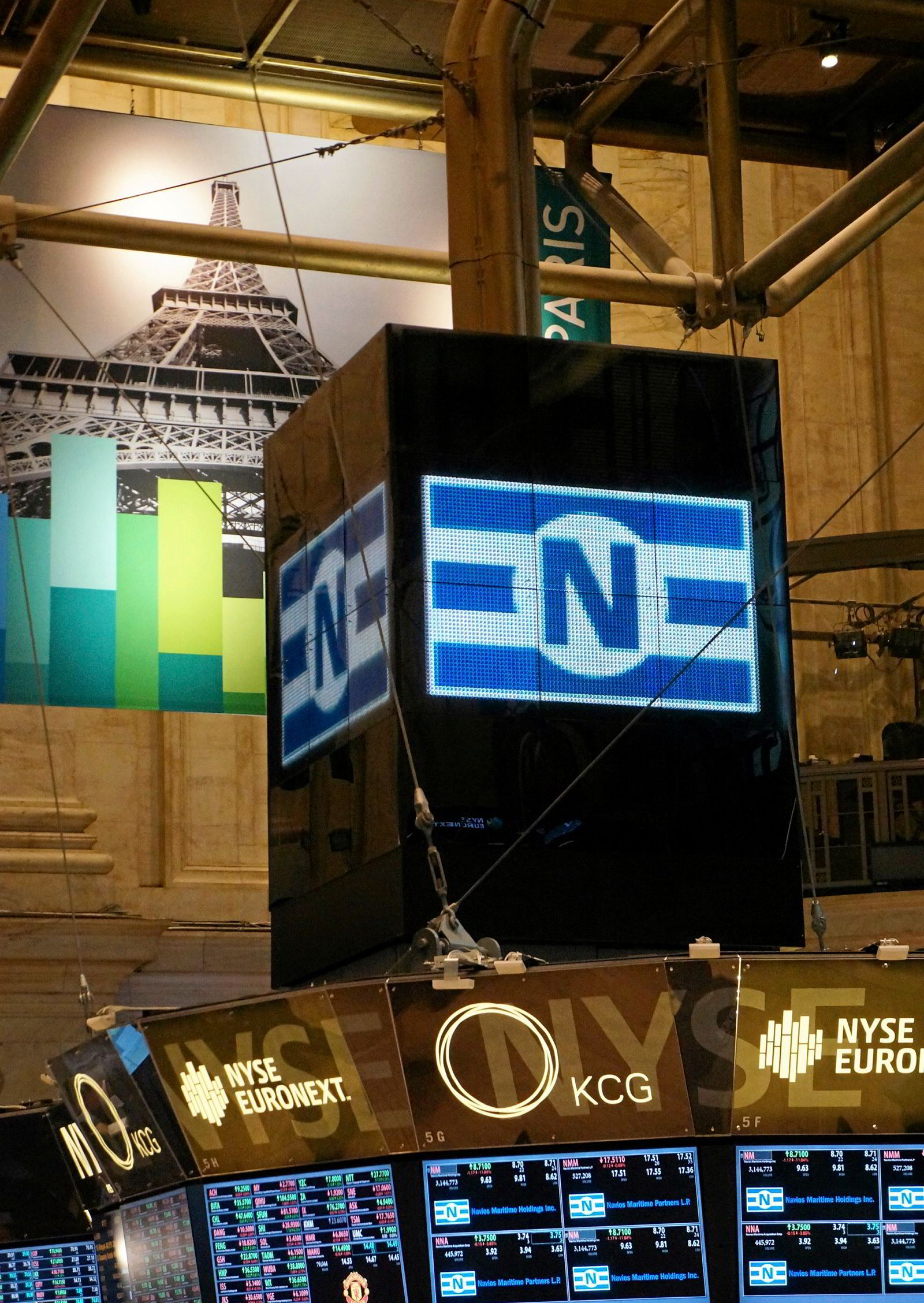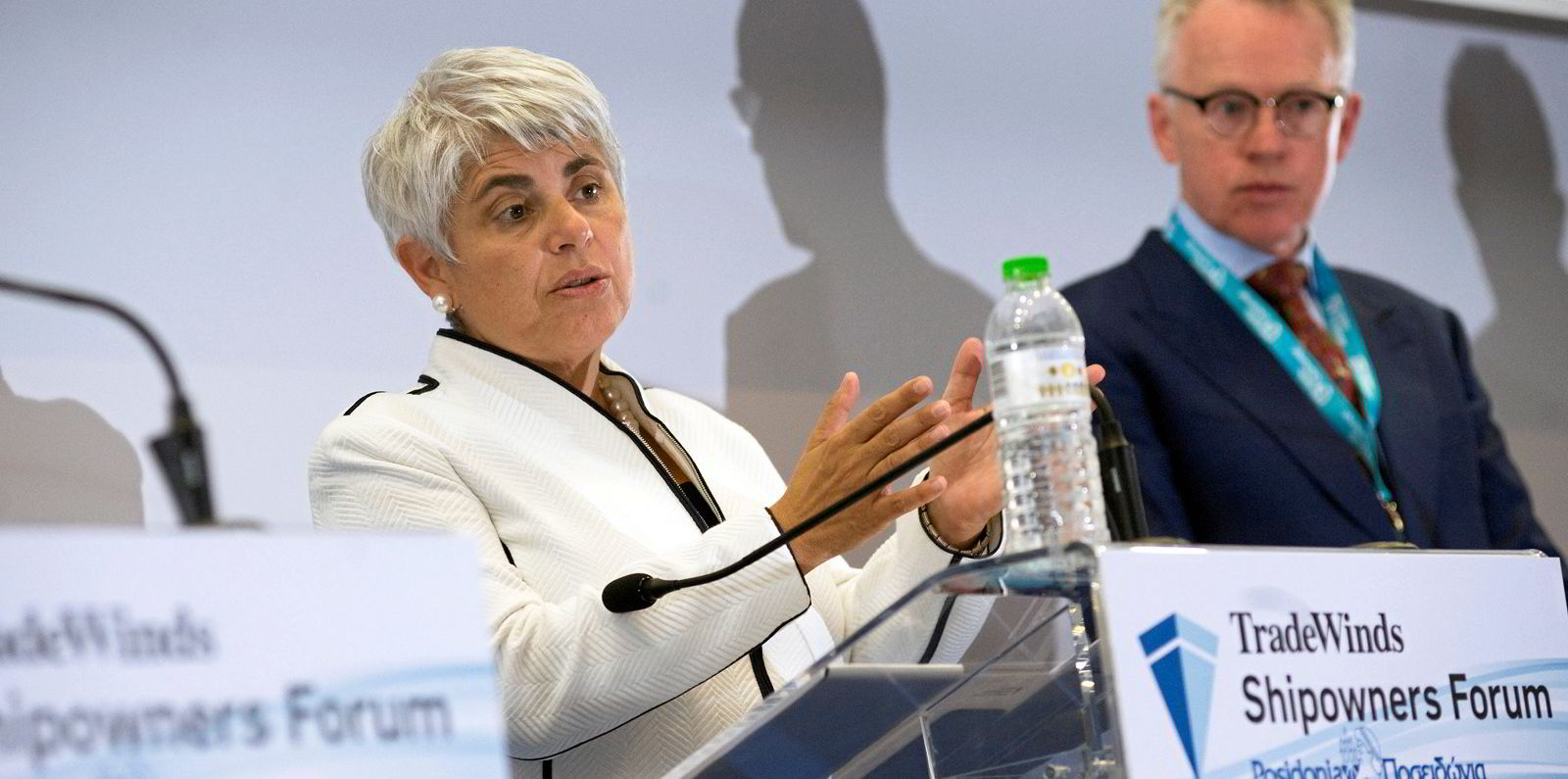As an accuracy minded shipping news editor, I grumbled to myself each time a new spin-off was created starting with the word "Navios". After all, it would mean more double checking to ensure the right entity was identified in each story.
When Navios Maritime Partners reached a deal to buy up its sister company, tanker owner Navios Maritime Acquisition, it was another step in simplifying what had been a complex web that the Angeliki Frangou-led group had spun.

But it also served to highlight the corporate governance pitfalls of the interlocking listed entities and spin-offs that are a common feature of large listed shipping groups.
That is because the merger cannot help but lead to this question: Did the Navios group forge a transaction that rescues one listed spin-off to the detriment of the shareholders of the other?
The jury is still out on the answer to that question, and Navios Partners and Navios Acquisition both get something valuable out of the deal. But the question is inevitable.
After all, Navios affiliates had three sets of shareholders to answer to.
In addition to the different shareholder bases at the two New York-listed shipowners that are merging, their largest shareholder is Navios Maritime Holdings, the top public company in the corporate family tree with its own stock quoted on Wall Street.
And then there is Frangou, the chief executive of all three companies and owner of the largest stake in Navios Holdings.
Like other spin-offs in the shipping space, the fine print of Navios Partners' securities filings lays out the risks.
Conflicts of interest
For one, the company's master limited partnership structure gives its general partner, Navios Holdings, "reduced fiduciary duties" to its shareholders.
Secondly, the structure may lead to conflicts of interest, according to Navios Partners' own words.
This may permit Navios Holdings and affiliates "to favour their own interests to the detriment of unitholders" in Navios Partners, the spin-off said in an annual report to the US Securities and Exchange Commission.
Before this deal, Navios Acquisition was facing a difficult situation: a looming November maturity of $397.5m in ship mortgage bonds amid a tanker market that keeps not wanting to recover. Missing that would be no good for the tanker owner or for parent Navios Holdings.
So Navios Partners, an owner of bulkers and containerships whose fleet is enjoying hot markets, stepped in to envelop its sister company in a cash-lined embrace that clears away the looming debt payment and creates a shipping conglomerate in three of the industries' key sectors: bulkers, tankers and containerships.
That was a big plus for Navios Acquisition shareholders, who saw their stock price rise 71.9% in the day after the transaction, and bondholders, who will be paid in full early.
Navios Partners' gain
Shareholders of Navios Partners are getting a less straightforward benefit from the deal.
J Mintzmyer, an investor who is head or research at Value Investor's Edge, said the deal was reasonable to both sides.

But he described recent share sales in an at-the-market offering by Navios Partners' as "atrocious" and "unnecessary", as they led to what he estimated as a 15% dilution.
And he held on to his “D” rating for Navios management, although at the same time he said he would consider hiking his investment in the shipowner.
“For Navios to have a higher governance rating [and hopefully also achieve a stronger share valuation], we need to see much stronger corporate governance and alignment of interests,” he said.
He suggested positive changes would include eliminating the general partner-limited partner relationship or managing ships in house rather than by related affiliates — moves that would help reduce conflicts of interest.
But if the share price is any indication, Navios Partners investors were not overly angered by the transaction, as the stock rose modestly the day after the announcement of the deal.
That may be because it is not just a bailout. Clarksons Platou Securities analyst Omar Nokta, who slapped a "buy" rating on the company's stock after the deal was announced, described the transaction as "part rescue and part opportunistic" because it adds a 45-tanker fleet to Navios Partners' portfolio at a well-timed, counter-cyclical moment.
Frangou told my colleague Joe Brady that the merger signals a move away from the so-called "pure play" ownership model that had driven shipping's plethora of specialised spin-offs.
Let's hope that moves like this are also an opportunity to reduce conflicts of interest between public shipowners' powerful management and their shareholders.
This story has been amended since publication to reflect that Mintzmyer's criticism focused on the Navios Partners share sales, rather than the Navios Acquisition deal.




